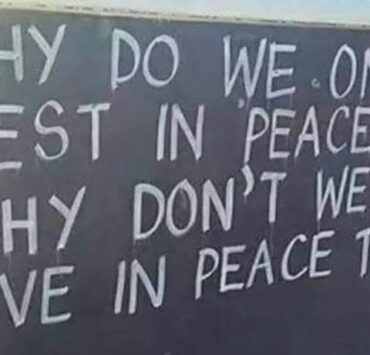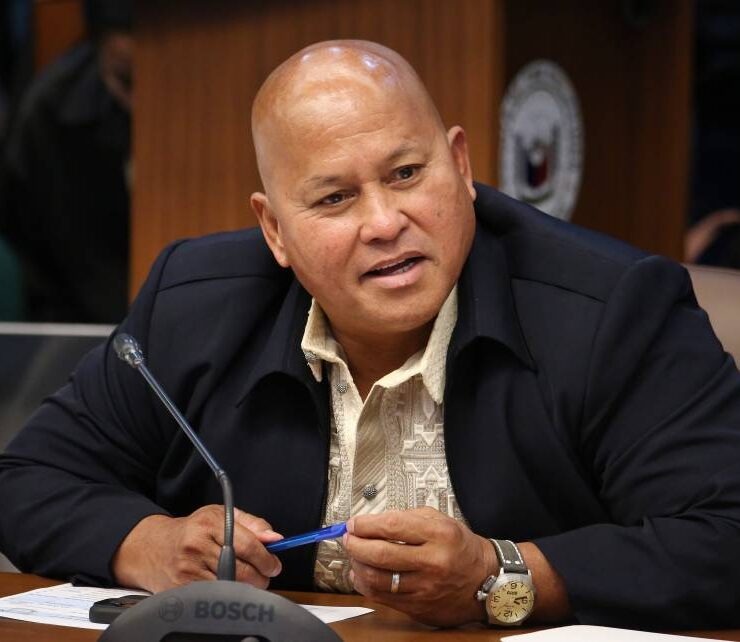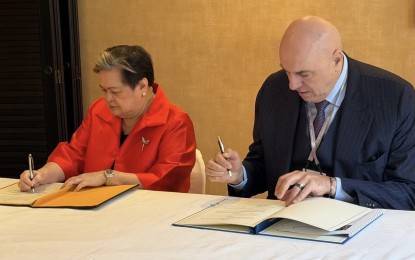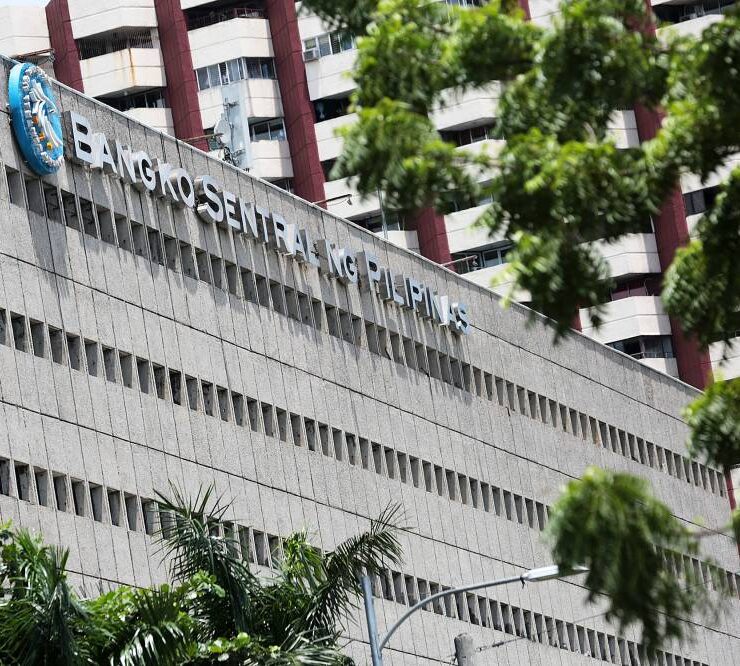State of the Nation Address: A wish list
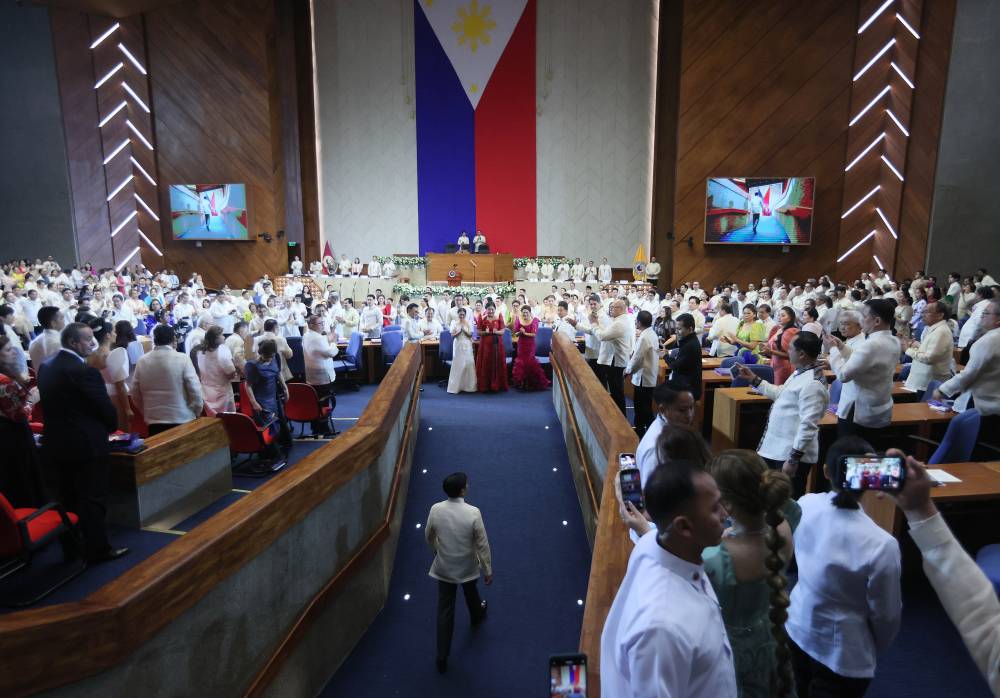
Editor’s Note: On Monday, July 28, President Marcos will deliver the State of the Nation Address (SONA), an accounting of what has been done and, hopefully, a road map to what comes next.
It will be President Marcos’ fourth SONA and a most important one—it marks the middle of his six-year term. The clock is ticking. But there is time left. What will he do with it?
We asked several leaders to weigh in on what they think are the most important tasks that President Marcos must do in his last three years in office, not merely to carve a legacy for the second Marcos presidency, but to truly make a difference in the lives of Filipinos. Here are their SONA wish lists:
Corruption
1) Corruption. 20-25% of our GDP growth is due to public spending in the budget. If 30-50% of the allocation is pocketed, we can never achieve the growth we need to improve our economy and alleviate poverty.
2) Education. The Program for International Student Assessment (PISA), confirmed by the World Bank, reported that 90% of middle school age children were illiterate.
3) Food. We must address food security.
—Frank Drilon, former senator and Senate president
The President must decisively address corruption in government. It is also about time that political dynasties are ended and the two party system is restored.
—Frank Carbon, vice president, Metro Bacolod Chamber of Commerce and Industry
1. The Marcos Jr. regime must stop its resistance to a nationally legislated living wage that reflects the actual cost of living. Workers must be able to put food on the table, send their children to school and afford transportation fare, basic health care and decent housing.
2. With corruption becoming so entrenched in government, and with Vice President Sara Duterte as the living example of top-level corruption, the Marcos Jr. regime must heed the people’s demand for transparency and accountability by going forward on her impeachment trial.
3. The Marcos Jr. regime must stop its policy of silencing dissent by abolishing the National Task Force to End Local Communist Armed Conflict (NTF-Elcac) and repealing the Anti-Terror Law and the Anti-Terrorism Financing Prevention and Suppression Act which have been weaponized against dissenters and constricted the civic space.
—Cristina Palabay, secretary general, Karapatan
Health care system
1. Fulfill the promise of Universal Health Care (UHC). President Marcos must prioritize full UHC rollout by strengthening primary care systems, expanding access to medicines, and ensuring that every Filipino—regardless of income or geography—can access quality care.
2. Restore integrity and funding to PhilHealth. With over P600 billion in reserves, PhilHealth must be reformed, not abandoned. The President must order a full audit of its investment practices, mandate transparency in claims processing, and protect indigent Filipinos from unfair premium hikes. Health care is a constitutional right, not a privilege for the few.
3. Institutionalize preventive health and health literacy. We must stop treating illness as inevitable. The administration should launch a national preventive health campaign, integrating preventive health education into the school curriculum, workplaces and local government agencies, calorie transparency, and culturally tailored coaching guides for barangay health workers. Prevention is not just a strategy—it is a philosophy of care that honors life before it is threatened.
—Dr. Tony Leachon, independent health reform advocate
Education crisis
As we confront our learning crisis, we look forward to the administration’s sharpened focus on addressing our challenges in literacy and numeracy even more boldly. We must turn our attention to filling all gaps in Kinder to Grade 3, ensuring that by 2028, all learners are literate.
We need to prioritize filling all gaps in Key Stage 1. Among our elementary schools: 11,000 are congested, 2,500 are on double/triple shifts, there are 22,000 gaps in teachers, and 22,000 gaps in principals. Since 2013, most of our additional funding has gone toward high school and college—it is time for primary education to get its rightful share of resources to reverse our current crisis. Stunting remains extremely stubborn, and early childhood education remains inaccessible.
We cannot fix 30-year problems overnight, but the next three years (2026-2028) will determine whether we will be able to stem this crisis once and for all. Fixing the foundations are the most critical and enduring reforms that will ensure that our students will learn and progress to higher grades successfully. There is no time to waste.
—Karol Yee, executive director, Second Congressional Commission on Education (Edcom II)
The Alliance of Concerned Teachers demands that President Marcos Jr. seriously address the education crisis by adopting a nationalist, scientific, and mass-oriented curriculum, increasing salaries to decent living standards, and allocating adequate public funds to the sector. The chronic underfunding of education worsens shortages in classrooms, teachers, education support personnel, learning materials, and basic school infrastructure—subjecting millions of Filipino youth to substandard and inaccessible education. Teachers and education workers continue to languish in poverty, with salaries that fail to reflect their indispensable role in national development.
—Vladimer Quetua, chair, Alliance of Concerned Teachers
Transport safety and modernization
Ang panawagan ng mga tsuper at operator sa [ikaapat na] SONA ni Pangulong Marcos:
1. Ibasura ang palpak, peke, at pahirap na programa ng modernisasyon! Itigil ang lahat ng uri ng phaseout ng kabuhayan ng mga operator at drayber!
2. Ibalik ang limang taong prangkisa at payagang maka-rehistro ang mga PUV!
3. Tanggalin ang VAT at excise tax sa langis at iba pang pangunahing bilihin!
4. Ibasura ang oil deregulation law! Panagutin ang mga oil companies sa overcharging!
5. Tanggalin ang labis-labis na multa at ang mga mapagparusang balangkas ng traffic management tulad ng NCAP!
—Pagkakaisa ng mga Samahan ng Tsuper at Operator Nationwide (Piston)
1. Stronger leadership and funding for road safety. Assign clear leadership—either the Department of Transportation or the National Road Safety Council—to coordinate all road safety efforts, with dedicated and sustained funding for national and local road safety programs.
2. A just transition for public transport modernization. Assist LGUs that already have LPTRPs (Local Public Transport Route Plans) as pilot implementation sites. Subsidize costs for jeeps in pilot sites. Address public transport supply and service gaps.
3. Protect people who walk, bike, and use personal mobility devices. Enact legislation that requires: (a) LGUs to build safe sidewalks, bike lanes, and crossings and other infrastructure that protects vulnerable road users—like pedestrians, cyclists, and persons with disabilities, and (b) transport planning and public works agencies to make walking and cycling part of everyday transport planning, with permanent funding and clear standards.
—Gybel Agregado, public transport lead; Mary Abigail Modales, active transport lead; Atty. Daphne Marcelo, legislative liaison, Move As One Coalition (MAO)
Clear direction for mining industry
1. Improve the Ease of Doing Business. Despite our rich mineral endowment, the Philippines remains one of the toughest places in the world to bring a mining project from exploration to production. Lengthy permitting timelines, redundant clearances, a tortuous consents process, and inconsistent interpretations of rules discourage serious investors and stall job creation in host communities. We hope to see the President push DENR, DILG, and ARTA for a credible, enforceable ease of doing business program for the mining industry.
2. Implement a strong, visible investment promotion program for mining. A revitalized Minerals Development Council, led at Cabinet level (preferably by a Mining Czar), could coordinate agencies, craft a roadmap for exploration and development, and organize investment missions abroad to signal that the Philippines is serious about responsible mining.
3. Create real incentives for downstream processing and develop a clear plan for critical minerals. For too long, our miners have been limited to shipping raw ore overseas.
—Ronald Recidoro, executive director, Chamber of Mines of the Philippines
Cybersecurity and digital economy
1. Establish a National Cybersecurity Council with clear authority to lead cross-agency coordination, incident response, threat intelligence sharing, and minimum security standards across sectors.
2. Critical Information Infrastructure (CII) Protection Act. Legally designate and protect vital digital systems in finance, telecom, energy, transport, and health. Mandate baseline security protocols and penalties for noncompliance.
3. Open Finance-Enabled eKYC Registry Law. Build a national, interoperable eKYC system anchored on PhilSys and integrated into the BSP’s Open Finance Framework to simplify and secure customer onboarding.
—Lito Villanueva, founding chair, FinTech Alliance PH
Food security
1. Food security through agrarian revitalization. High food prices remain an unfair regressive tax on every Filipino family. We must deploy bold reforms and climate-resilient technologies to uplift millions of rural smallholder farmers and fisherfolk; modernize postharvest infrastructure to slash at least 30% annual spoilage losses; recalibrate import policies to protect, not undermine, local producers.
2. Sincere and institutional anticorruption reforms as fiscal strategy. Corruption isn’t merely a massive moral failure—it’s fiscal hemorrhage harming the Philippine economy. Each P1 billion pilfered from state coffers or infrastructure denies students access to new classrooms or families access to medicine and basic health services.
3. Economic diplomacy for strategic autonomy. In a fragmented and unstable global economy, we must transform geopolitics into Philippine economic growth leverage and not into weakness. Have a truly independent foreign policy focusing on boosting economic cooperation with all the world’s big powers and depoliticizing diplomacy with strategic autonomy; increase tourism targets to 15 million arrivals per year.
—Wilson Lee Flores, resident, Red Apple Properties & Management, Inc.; owner, Kamuning Bakery Café
Indigenous Peoples
Last SONA, (the President) had nothing to say about IPs (Indigenous Peoples). I hope that this year he will recognize that there is a significant percentage of IPs in the country whose rights continue to be violated under his administration. The National Commission on Indigenous Peoples, the agency tasked to help IPs, is instead the national kunsomisyon of IPs. It is graft-ridden and facilitates destructive projects [on] ancestral lands.
The Anti-Terrorism Act is being weaponized to quell dissent and should be repealed. The NTF-Elcac continues to Red-tag Indigenous activists, organizations and advocates. It should be dismantled, as per the recommendations of two United Nations special rapporteurs.
—Joanna Cariño, Ibaloy activist
Flood control
President Marcos must declare in his SONA that his administration will provide continuous support for environmental programs and projects to address the flooding problems. This is what is most needed in Bacolod City now. Funding from the national government for flap gates and pumps to prevent flooding is needed.
—Greg Gasataya, Bacolod City Mayor
—Reports from Dexter Cabalza, Jane Bautista, Renz Palalimpa, Gillian Villanueva, Doris Dumlao, Vincent Cabreza, Carla P. Gomez
Art: Albert Rodriguez
Edited by: Juliet Javellana, Gibbs Cadiz














